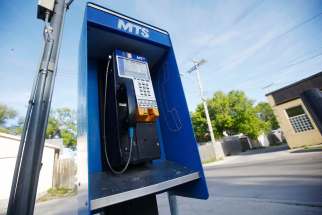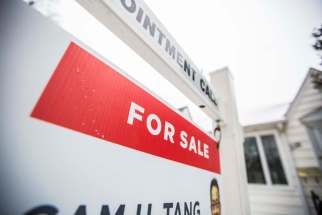‘Helicopter never stopped coming’ Winkler-Morden COVID-19 ward doctor reflects on heavy weight of pandemic weekend
Read this article for free:
or
Already have an account? Log in here »
To continue reading, please subscribe:
Monthly Digital Subscription
$0 for the first 4 weeks*
- Enjoy unlimited reading on winnipegfreepress.com
- Read the E-Edition, our digital replica newspaper
- Access News Break, our award-winning app
- Play interactive puzzles
*No charge for 4 weeks then price increases to the regular rate of $19.00 plus GST every four weeks. Offer available to new and qualified returning subscribers only. Cancel any time.
Monthly Digital Subscription
$4.75/week*
- Enjoy unlimited reading on winnipegfreepress.com
- Read the E-Edition, our digital replica newspaper
- Access News Break, our award-winning app
- Play interactive puzzles
*Billed as $19 plus GST every four weeks. Cancel any time.
To continue reading, please subscribe:
Add Free Press access to your Brandon Sun subscription for only an additional
$1 for the first 4 weeks*
*Your next subscription payment will increase by $1.00 and you will be charged $16.99 plus GST for four weeks. After four weeks, your payment will increase to $23.99 plus GST every four weeks.
Read unlimited articles for free today:
or
Already have an account? Log in here »
Hey there, time traveller!
This article was published 01/06/2021 (1655 days ago), so information in it may no longer be current.
Over the weekend, Dr. Ganesan Abbu thinks he got, give or take, seven hours of sleep.
Abbu leads the Boundary Trails Health Centre’s special care unit, which treats its COVID-19 patients.
The hospital, which sits between Winkler and Morden at the connection of Highways 3 and 14, has struggled under the weight of COVID-19’s impact on the Southern Health region in the third wave of the pandemic.
It’s had to close operating rooms to deploy more staff to treat COVID-19 patients, and has brought in backup oxygen to support its most severely ill.
Just eight doctors at Boundary Trails treat the large majority of its COVID-19 patients.
Abbu said this past weekend was the busiest of the entire pandemic. He believes around 40 per cent of all patients transferred to Winnipeg and Brandon intensive care units from rural areas over the weekend came from the 94-bed hospital.
“The helicopter never stopped coming on Saturday night, into Sunday morning,” he said in an interview. “At four in the morning, we needed another transfer — and they said, ‘Everyone’s tired, the earliest we can come is at seven (a.m.).’ So we had to do that one by ground transfer.”
“They don’t want to hear that this is COVID, because in their minds, they’re convinced COVID is a hoax. It is something that the government is using to impose control over their lives.”
– Dr. Ganesan Abbu
There were currently some 20 COVID-19 patients at Boundary Trails — none of which, Abbu said, had been vaccinated.
Of those, he said, “very few” had been waiting to be vaccinated.
“There are the absolute deniers, where even if they’re dying from COVID, they’re saying, ‘No, this is not COVID, it’s something else,’ and the alternatives they propose would be influenza, another virus, cancer even,” he said.
“They don’t want to hear that this is COVID, because in their minds, they’re convinced COVID is a hoax. It is something that the government is using to impose control over their lives. So it’s a clash of different worldviews in this area.”
Some patients, Abbu said, acknowledge the reality of COVID-19 only when they themselves have become gravely ill. Boundary Trails staff tell of patients, just before they are intubated, asking loved ones to get vaccinated, he said.
“It’s sad that it takes that degree of illness to convince someone, perhaps, that vaccination is a good thing.”
Why do some people continue to deny the existence of COVID-19 even when facing serious illness?
In part, Brandon University sociology Prof. Christopher Schneider said, it’s hard to change a person’s mind when they feel they’re being told what to do.
“It’s sad that it takes that degree of illness to convince someone, perhaps, that vaccination is a good thing.”
– Dr. Ganesan Abbu
“It’s a measure of the distrust that people have in social institutions, like government, like medicine. We then have to ask the question: who are the people and why would they mistrust these institutions?” he said.
Outside of a baseline impulse to push back against what might feel like an overreach of power, a “profound distrust” is baked into some local communities in a way often backed up with facts. Schneider referenced Canada’s long history of medical mistreatment of Indigenous people as an example.
That distrust can be powerful enough to change people’s entire worldview to the point where, even in sickness, they can’t be swayed, he said.
COVID-19 is a multi-faceted crisis to tackle by design, Schneider suggested: some God-fearing folks may choose to ignore its severity or refuse a vaccine in the name of accepting the divine’s omnipotence in deciding a person’s health, while those more prone to conspiracy may point to the ever-changing nature of scientific discovery (for example, the changing discourse around wearing face masks outdoors as a safety measure) as proof the virus is overblown or not real.
“There has to be a set of conditions that would lend itself to conspiracy theories taking root and taking hold,” Schneider said.
“I feel that we still need to show compassion, we need to build trust. I’ve lived in this community for over 20 years. These are good people.”
– Dr. Ganesan Abbu
“So to people who already have a strong belief in science or a strong trust in government, this would act as a shield or deterrent to these conspiracy theories… But for those who don’t have that, who might believe in things that are already fantastical or don’t correspond with reality, coupled with a distrust in the government, this I think would provide fertile ground.”
Abbu said his responsibility is not to criticize patients and families — and his goal is never to burden them with guilt, especially in the state he’s often meeting them — but instead provide context and information, should they be well enough to receive it.
“I feel that we still need to show compassion, we need to build trust,” he said. “I’ve lived in this community for over 20 years. These are good people.”
malak.abas@freepress.mb.ca
Twitter: malakabas_

Our newsroom depends on a growing audience of readers to power our journalism. If you are not a paid reader, please consider becoming a subscriber.
Our newsroom depends on its audience of readers to power our journalism. Thank you for your support.
History
Updated on Tuesday, June 1, 2021 7:26 PM CDT: Adds photos

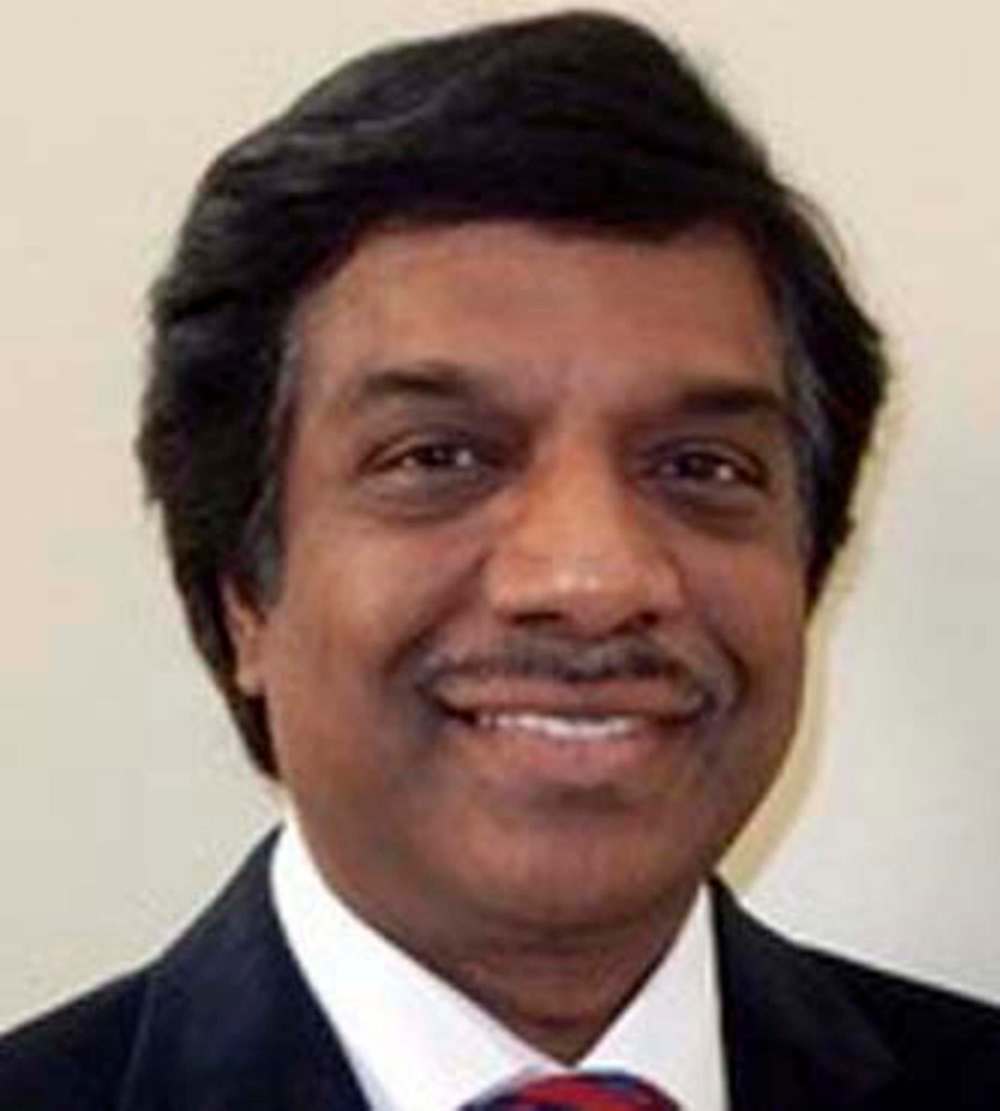

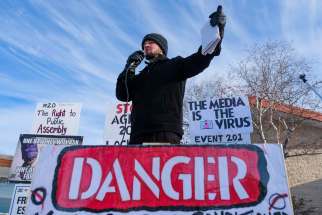
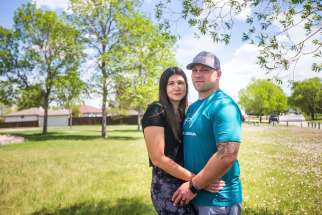
.jpg?h=215)


